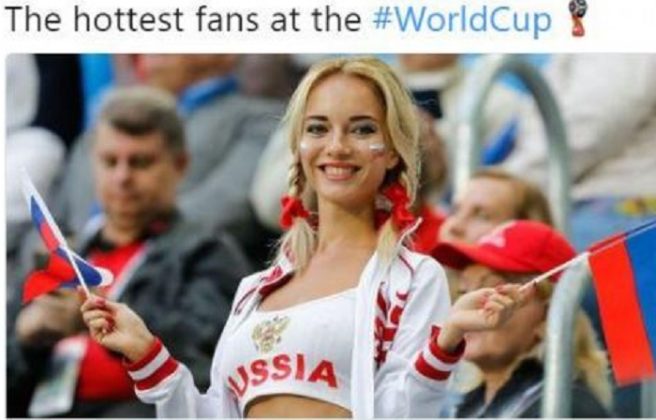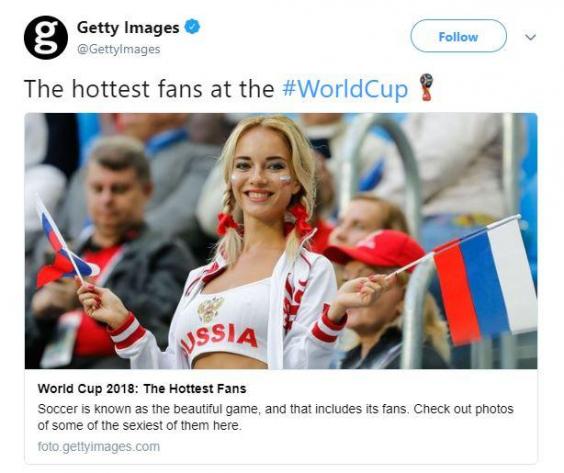
Stock photo site under fire for ‘Football’s Sexiest Fans’ feature
In the lead up to the World Cup in Russia, fears of off-pitch problems dominated the discussion. While there have yet to be any major incidents reported from the tournament, instances of homophobia and misogyny have been widely spread.
However, calls for the football stands to be made a more equal space for female supporters compounded today, thanks to a rather unusual source. Photograph-sharing platform Getty has come under fire for publishing an article featuring a collection of "sexy" female football-watchers.
The article, now deleted, was screen grabbed by indy100 and included the by-line: "Soccer is known asa beautiful game, and that includes its fans. Check out photos of some of the sexiest of them here."

According to Indy 100, the gallery contained approximately 30 images of traditionally attractive women and not a single man. Oh, and there was another catch-line that read "Talk about a knock-out round…"
How charming and original. Not.
Needless to say, Twitter was not pleased.
delete this before anyone sees
— Emily Reynolds (@rey_z) 26 June 2018
The 1970s called & they want their misogyny back. What a bunch of sad, sleazy perves you are.
— SaintCirce (@SaintCirce) 26 June 2018
This is why we have @womenatthegame and @ThisFanGir1 and @WomeninFootball and MY ENTIRE PHD THESIS.
And yet even when women are supporting their teams at a World Cup they still get objectified in a way that men don't. It trivialises them and their support. https://t.co/a9sMwBlOq4
— Carrie Dunn (@carriesparkle) 26 June 2018
I see a tweet that Getty scheduled for the 1974 World Cup has finally gone live https://t.co/VARW1wTAm9
— Matthew Champion (@matthewchampion) 26 June 2018
This comes at a time when more and more women are calling for greater inclusion in the sporting world. Just last week, the ban on Iranian women attending matches was lifted and pages such as This Fan Girl have been working tirelessly to promote real women (as opposed to sex symbols) in the stands.
A spokesperson for This Fan Girl, Emma Townley, told indy100 that the publication of the piece was "disappointing".
"They need to do better, because of their size and influence they have a huge responsibility to not perpetuate the toxic male primacy that exists in football. I was going to tiptoe around this but we're so bored of this narrative.
"We set up This Fan Girl to fight exactly this, clearly, the problem is still fairly deep rooted and we desperately need balance."
Watch England’s last group game in an east London pub with a bunch of badass women.https://t.co/NBU671y0T2 pic.twitter.com/cwlPtYF2vw
— Time Out London (@TimeOutLondon) 22 June 2018
In response to the backlash, Getty deleted the article and apologised saying that it "did not meet our editorial standards."
Speaking to Channel 4 Getty's chief executive, Dawn Airey said that the piece as not reflective of company beliefs.
"[The gallery] was not appropriate or in any way consistent with our company values or beliefs.
"We hold a deep belief in the power of visuals to incite change and shift attitudes and we have done and will continue to do, much work to promote and create a more evolved and positive depiction of women."
We hope that this outdated approach to female football fans will die off soon.













